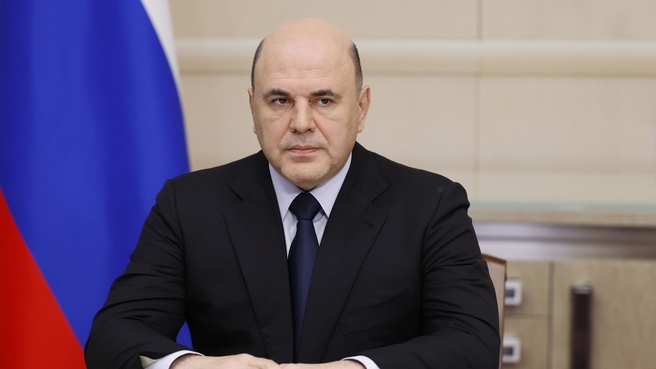The meeting took place via videoconference
Mikhail Mishustin’s opening remarks:
Good afternoon, colleagues,
We continue working to ensure the needs of the Armed Forces for the special military operation. We are steadily increasing the production of the required technology and equipment, among other things. It is necessary to build up plant capacities faster. With this aim in view, the Government made decisions to subsidise investment projects on modernising production facilities. It is channelling substantial sums for repairs and manufacture of new equipment, funding state contract supplies of everything necessary, including communication devices, personal body armour, fuel, oil and lubricants.
Colleagues, I would like to draw your attention to the need to receive a maximum return from every rouble invested and to control the distribution and use of budget resources in an objective, unbiased way. That said, it is important to bear in mind the do-no-harm principle so as not to block contracting processes and not to upset the continuity of production.
Some of our departments are displaying an effective approach to the formation of initial prices for government contracts, allowing them to use federal funds rationally. This applies to this year’s targeted supplies of immunobiological medicines, ambulances and rehabilitation technical gear. The Coordination Council should conduct similar work in all areas of its activities.
It is very important to monitor the construction of military facilities, including engineering equipment for troop deployment. Specialists, including civilian personnel are selflessly working in this area. Despite the large scale of the work, they have already done a lot. The construction proceeds in strict conformity with the approved schedules. It is necessary to maintain the momentum gained in order to fulfil all assigned tasks as quickly as possible.
Boosting the social security levels of those involved in the special military operation is a high-priority matter.
The Government has modified regulations for volunteers covered by disability retirement plans following wounds, injuries or diseases. This will allow them to obtain two pensions, including a disability pension, as well as various compensations stipulated by Russian legislation.
We are drafting other decisions, and we will announce them in due time. The Government has approved the initiative of the State Duma on supporting the widows of war veterans. They should be eligible for monthly cash benefits. The deputies have already approved the first version of the bill.
Members of the Coordination Council continue to monitor the allotment of pay grades and social benefits to all participants in the special military operation, including draftees. According to security and law enforcement agencies, all payments have been made in full volume this past December. The Government has set aside additional funding for social payments to medical personnel of the Armed Forces and other service personnel assisting wounded soldiers.
Colleagues, please keep an eye on the timely payment of benefits to everyone accomplishing various objectives during the special military operation.
We are providing additional support to businesspersons who are now addressing various military objectives. They can defer on federal property payments for longer time periods.
From now on, they can resume such payments 90 days following their discharge from military service.
Individuals, including self-employed businesspersons, as well as legal entities, specifically, companies established and managed by one person and employing the very same person, shall have this right. These amendments will provide our defenders with enough time to completely resume all business processes, without fearing any possible financial claims.
At our current meeting, I would like to ask the heads of working groups to report on the implementation of targeted tasks and the results of stipulating prices for goods, works and services that are needed for this.
I am asking Defence Minister Sergei Shoigu and heads of the Interior Ministry, the National Guard of Russia and the Federal Security Service to provide information about technical equipment levels at their agencies and the process of signing state contracts.









